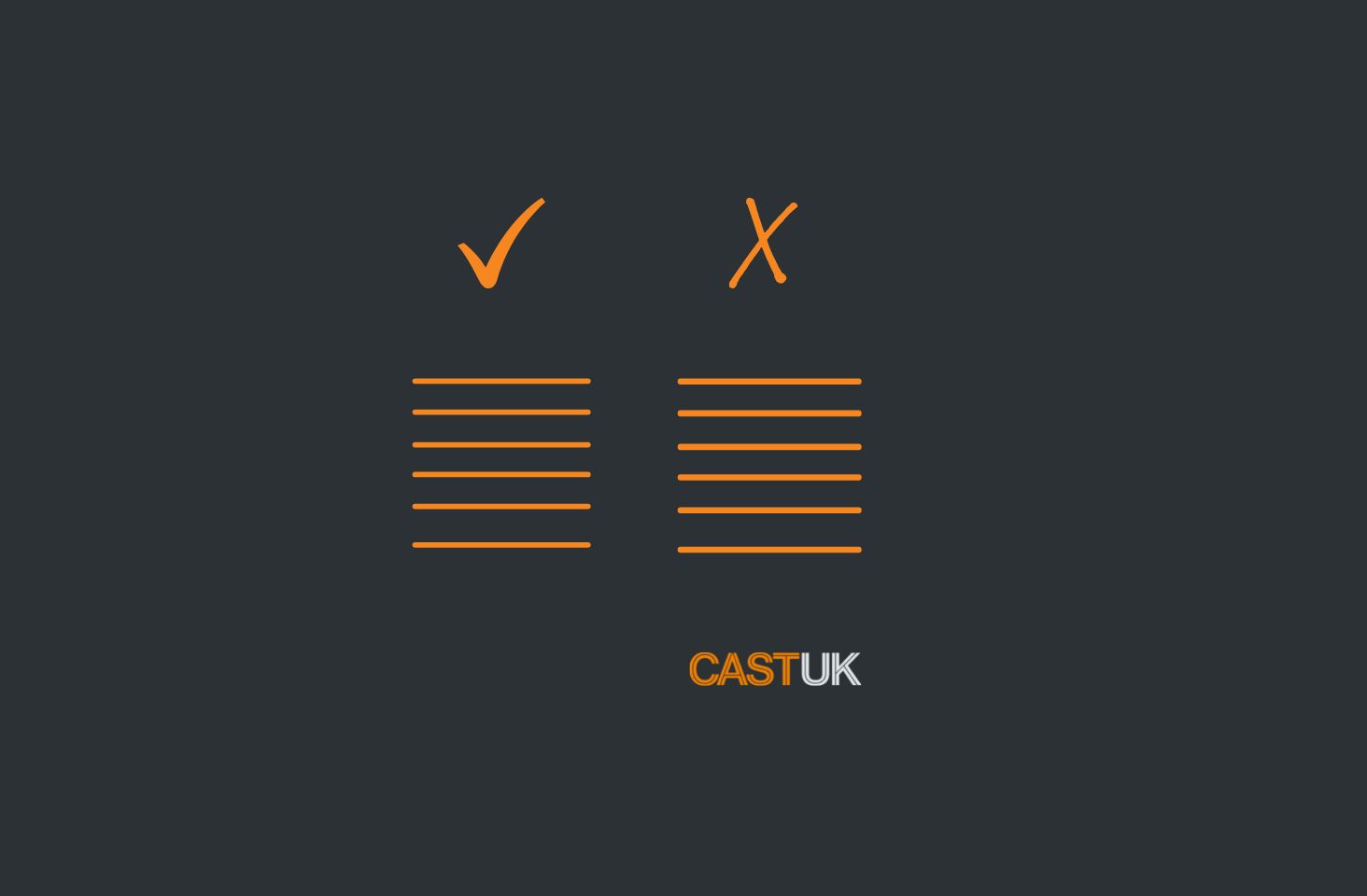
Wayne Brophy
Sep 10, 2019
On the Fence? 5 Pros and Cons of Video Interviewing
Wondering what all the fuss is about with video interviewing? Well in the first part of our Pros and Cons of Video Interviews we look at the top five advantages. After all, there must be a reason video interview use shot up by 23% from 2013 to 2017...
We do love the power of great video at Cast UK - for interviews, employer branding and social selling alike - but we’ve been sure to back up the pros with facts. And it’s not always for everyone - so stay tuned for the next installment on the cons later this week.
The five pros of video interviewing
Here’s what all the fuss is about...
1.It saves time and money (for both parties)
In our experience, we see that employers typically save an average of 1 hour + per interview, due to factors such as:
- Not every person involved in the hiring process needs to be there. Instead, the video recordings can be reviewed in bulk.
- It’s easier to recall and remember specific details about candidates. Some tools, such as our Broadcast video interviewing software, enable you to view all short-listed candidate videos, notes, CVs and psychometric testing results in one place, with one link, as many times as you like.
- Coordination time is reduced as it’s easier to set up mutually convenient meeting times. (We find many employers still conduct face-to-face interviews at the initial stage as they know how important cultural fit is.)
- One-way video interviews can also be used to screen in and out a large number of candidates quickly. Simply decide on the questions and then review all the videos in one sitting (or spread them out on your commute). However, beware of the impersonal nature of this (see the cons).
Candidates also save money on travel expenses, food costs and time off for interviews. If they are travelling long distances, they also save on hotel costs.
2. It can improve the candidate experience (and avoid losing top talent)
"46% of candidates who withdrew from the recruitment process on grounds of a ‘bad experience’ listed ‘time disrespected during the interview process’ (The top reason provided.)"
HireVue – The Talent Board survey
A lot of companies worry that they are losing candidates due to a lengthy recruitment process and the HireVue survey above shows that they’re right. With the increasing skills gap, employers can’t afford to take that chance.
It’s stressful and inconvenient for candidates to attend in-person interviews. Travel time, using holidays (or making doctors appointment excuses) and travel costs make it a big commitment.
Video interviews are becoming a useful tool for employers who have #TalentFOMO. When used as a first-stage interview, they’re a much quicker way of getting a real feel for candidates and they’re easier for the candidate to do the same.
In our experience, the total recruitment process is reduced by 67% when using video interviews.
3. You can rule candidates in or out for cultural fit early on
We all instinctively know that teams that fit culturally do better - and the statistics back this: it improves employee engagement, motivation and increases productivity by 36%, according to ThriveMap.
Employers can get a much better sense of a candidate’s personality and whether they will fit culturally if they use video interviews instead of telephone interviews early on. Interviewing in this way also means that employers can “see” more candidates face-to-face, meaning they are less likely to miss out on those whose CVs don’t do them justice.
4. Structured interviews lead to better hiring decisions
“When it comes to interviewing, don’t trust your gut. More often than not, your gut reaction isn’t a product of hidden wisdom. Rather, it’s a result of unacknowledged biases that can lead you to overlook strong candidates”
Laszlo Bock of Google (Work Rules, 2015)
Interview biases often creep in and affect our ability to make sound judgements. In fact, a study by the University of Tolado on the importance of first impressions in a job interview found that the outcome of an interview could be predicted by judgments made within the first 10 seconds of dialogue.
However, research that looks at the validity and utility of selection methods over 85 years confirms that it’s a bad way to hire.
As video interviews are recorded, there is much less likelihood that interviewers will go off the beaten track. And if you conduct solo interviews with the same pre-set questions asked each time, there’s no chance that they can!
5. You can review the interviews as a team before making tough decisions
We’re all familiar with the X Factor selection process. The judges stand around and debate the pros and cons of the hopeful contestants. They pull up all of the clips and debate their merits. If they didn’t have these clips at their disposal, there would be a danger that they could be swayed by unconscious biases or the audience reactions (and we all know the audience can cheer on some pretty awful singers).
The hiring process is no different. It can be easy to let interview biases creep in, or to forget what a candidate was like (especially if they were in the middle of a long interviewing process). Video interviews enable you to review all the candidates objectively together as a team.

Are you considering whether to use video interviewing in your recruitment process? Not sure when you should use it or what features you really need? Then check out our WEBINAR: Video interviewing: when and how to use it to hire better.


